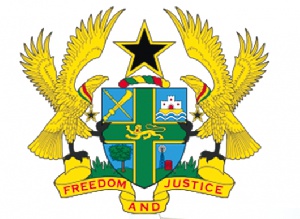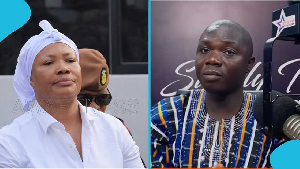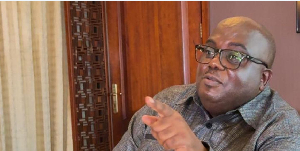So far, the two most impressive developments about Ghana’s democratic experiment that may be genuine envy of the rest of the world are some of our “reckless” but vibrant media outlets, as well as the peaceful and smooth transfer of power from a ruling party to the opposition’s. Clearly these phenomena foreshadow trend lines of a fast-developing democracy and a political culture based on the will of the people. On these foregoing fronts, Ghana, it appears, is moving away at the lightning speed from the gloomy days when all the levers of state power were centered in one person’s hands.
Certainly, the political system in place now is far better; it’s contemporary, and a marked departure from the era of totally unchecked and unbalanced government used to be run from the Osu Castle. As we speak, Ghana practices multiparty democracy; and, almost all the democratic variables point to majority of Ghanaians’ determination to tell a success story about the country’s political experimentation in the not-too-distant future.
However, in every experiment, there are key indispensable variables without which the whole process will not yield the conclusive outcome sought for. Indeed, the same is true for any modern democratic experiment as the one unfolding in the country today.
Ghana has constitution that clearly spells out all the institutional structures and their functions, including how the country must be governed according to the dictates of social media-age democracy. Notwithstanding, there are some notable missing links or severe cracks within the façade of the 4th Republican Constitution yearning for amendments.
Obviously, constitutions that are designed for genuine democratic governments are not usually easy to amend. One of the main reasons behind the constitutional framers’ intention is to discourage any future power-hungry or some egoistic group of people from easily amending them under any frivolous condition just to satisfy some selfish causes.
Effective constitution has intrinsic features such as stability, rigid internal controls, but the same time leaves enough room to accommodate amendments in the event of extenuating circumstances. No doubt, the current military-centric or the one-person-inspired (PNDC era) constitution of Ghana is in serious need for some amendments, especially, if Ghanaians are honest about fighting or eradicating public corruption.
Unmistakably, this constitution is crying for strong oversight system, and the most effective place for that to happen is the “people’s house” or Ghana’s parliament. Ghanaians would recall that the present constitution was initiated and commissioned in the early 1990s under one-man PNDC military regime. Therefore, it’s not surprising that the 4th Republic Constitution displays some inherent dictatorial profiles on the executive’s side reflecting the expectations of typical military rulers.
For instance, an impassioned appraisal of some aspects of Ghana’s constitution shows disproportionate concentration of power in the executive branch. This seemingly lopsided convergence of power in one person or the executive president’s hands means the checks and balances are badly compromised within Ghana’s political machinery. We have persuaded ourselves to believe that Ghana has well-oiled democratic system; but basically, the critical legislative monitoring and reviewing responsibilities are nearly nonexistent.
Under dynamic democratic order, the parliament or legislative branch is the natural nerve center of power. It is the place where not only all the laws of the land are produced, but also the all-important oversight activities to double-check and scrutinize the contours of the executive branch and its motley of state bureaucracies are supposed to occur there. Since the executive is the only branch of the government that executes and enforces all the state laws and policies of the country, it is impossible to oversee its own functions fairly. That is why in the history of good democratic governance the most essential job of oversight is assigned to coequally independent legislature.
At best, the country’s parliamentary oversight capabilities lack incisive bite. With all these inadequacies, though, there seems to be a glowing light at the far end of the murky tunnel. It’s encouraging to note that Ghana’s current executive president is a life-long student of checks and balances who also has a deep-seated belief in strong parliamentary oversights of the executive arm.
Indeed, way before and after his assumption of the nation’s presidency, Nana Akuffo Addo has consistently shown sincere commitment and willingness to support a push for constitutional rule or amendment that empowers the legislative branch to carry out its legitimate functions of serious oversight. That way Ghana can mount penetrating crusade against the unaccountable tax and spend behavior of the all-powerful executive branch under the 4th Republic Constitution.
Here is President Akuffo Addo in Berlin, Germany, recently talking about constitutional amendment in regard to stronger parliamentary oversights to help fight state corruption: “I belong to the group that feel strongly that our parliament should be able to exercise full authority over our public finances…if this were done, it would enhance significantly parliament’s oversights” to put screws on the executive branch’s out-of-control public expenditure (see: GNA report, June 14, 2017).
As Executive President of Ghana, Nana Addo is in a unique position to know and understand the significant role of legislative oversights over the executive branch he has the privilege to lead. Honestly, his suggestion is a first-class exhibition of selfless leadership uncommon in this part of the world. Rather than engage in buck passing and putting all Ghana’s woes at the doorsteps of the president, why don’t we pay serious attention to the amendment challenge? Let it be known that any talk of fighting corruption in Ghana’s bloated bureaucracy can never succeed if the nation’s parliament keeps playing second fiddle to the executive branch while also embracing weak oversight role. Wake up from your deep slumber, honorable MPs!
Bernard Asubonteng is a US-based writer. Email your comments to: b.asubonteng@gmail.com
Opinions of Friday, 23 June 2017
Columnist: Bernard Asubonteng
The wages of weak oversights in democratic Ghana
Opinions














